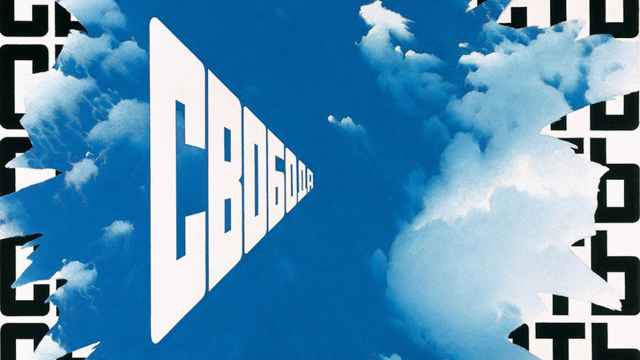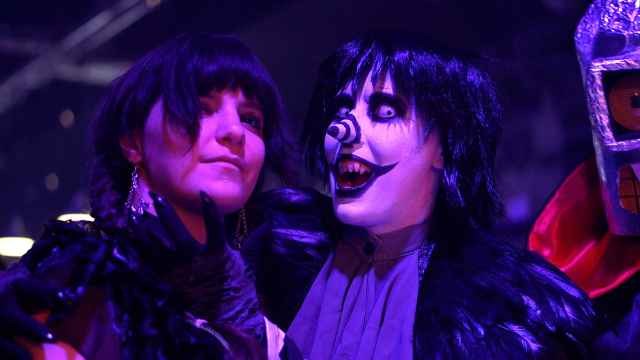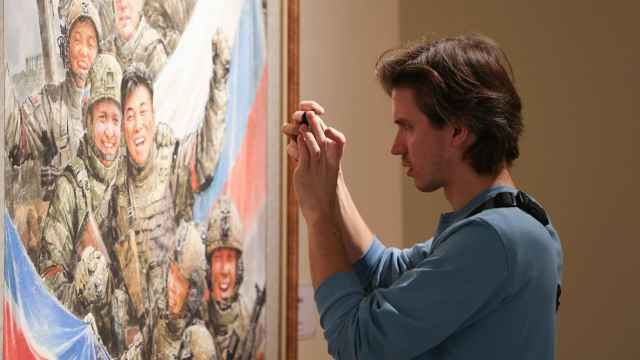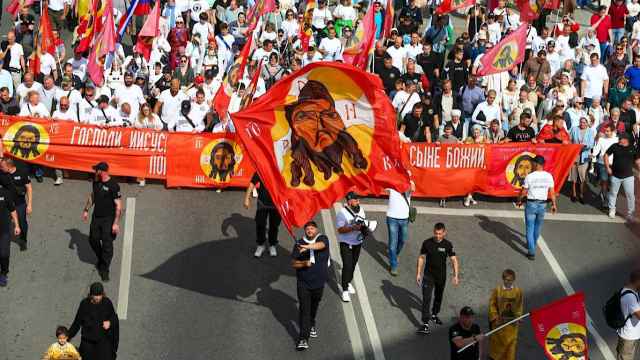The Night of Ivan Kupala, in Photos
While the summer solstice is more commonly marked with parties, fireworks and picnics in today's Russia, there's plenty of history behind the rituals that preceded modern-day celebrations.
Ancient tribes that inhabited this part of the world celebrated with fire, water, song, dance and rituals. Called the Night of Ivan Kupala (from the word “to bathe”), pagan villagers would head into the fields and forests in the evening, searching for the mythical fern flower. This flower supposedly only bloomed on the shortest night of the year, and gathered other herbs whose potency was considered greatest on the summer solstice.
Here's a look at how Russia celebrates this ancient holiday in modern times:
Ancient tribes that inhabited this part of the world celebrated with fire, water, song, dance and rituals. Called the Night of Ivan Kupala (from the word “to bathe”), pagan villagers would head into the fields and forests in the evening, searching for the mythical fern flower. This flower supposedly only bloomed on the shortest night of the year, and gathered other herbs whose potency was considered greatest on the summer solstice.
Here's a look at how Russia celebrates this ancient holiday in modern times:
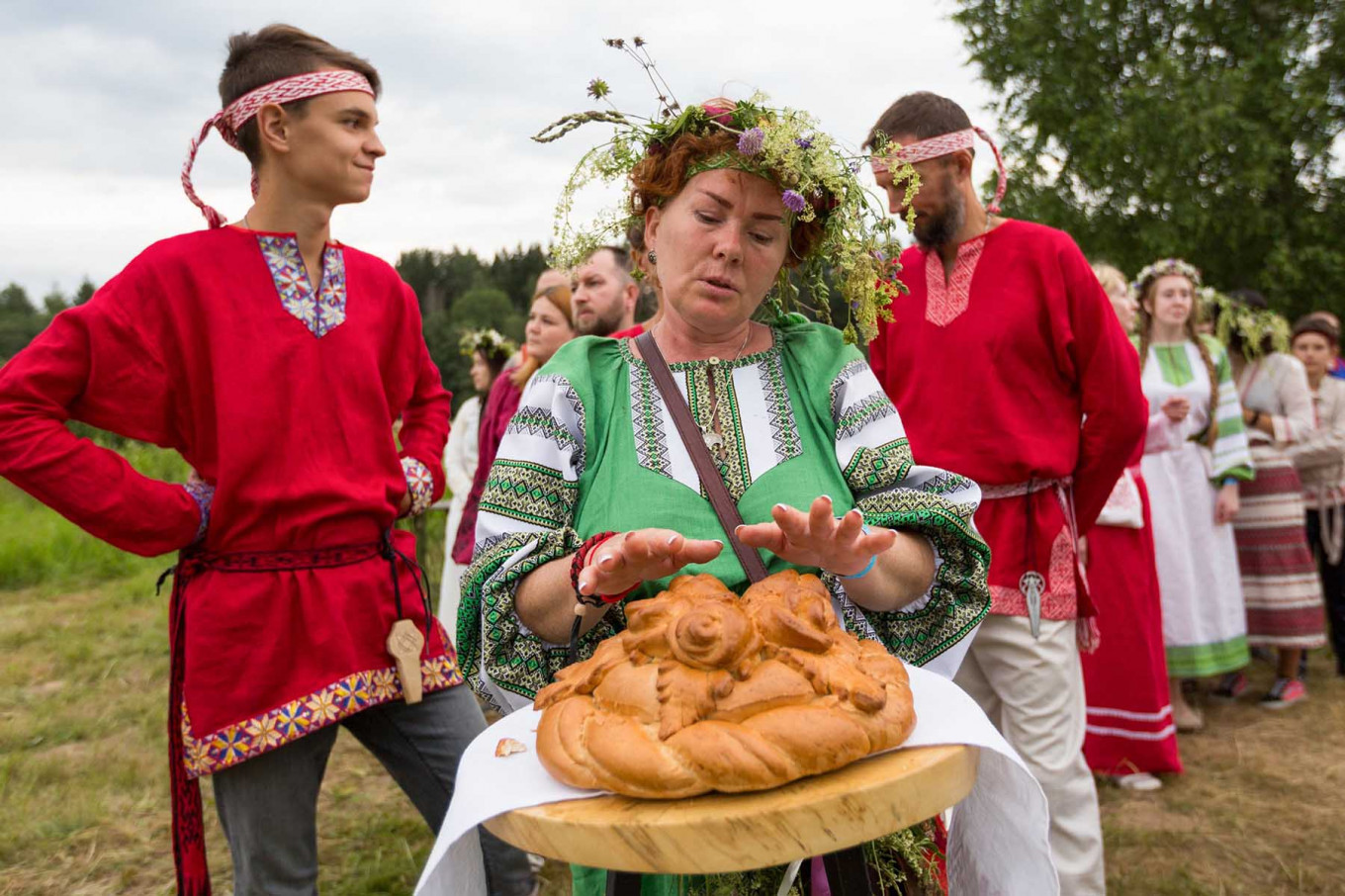
When Christianity began to encroach on these ancient rituals, the holiday became a day to honor John the Baptist on June 24.
Moskva News Agency
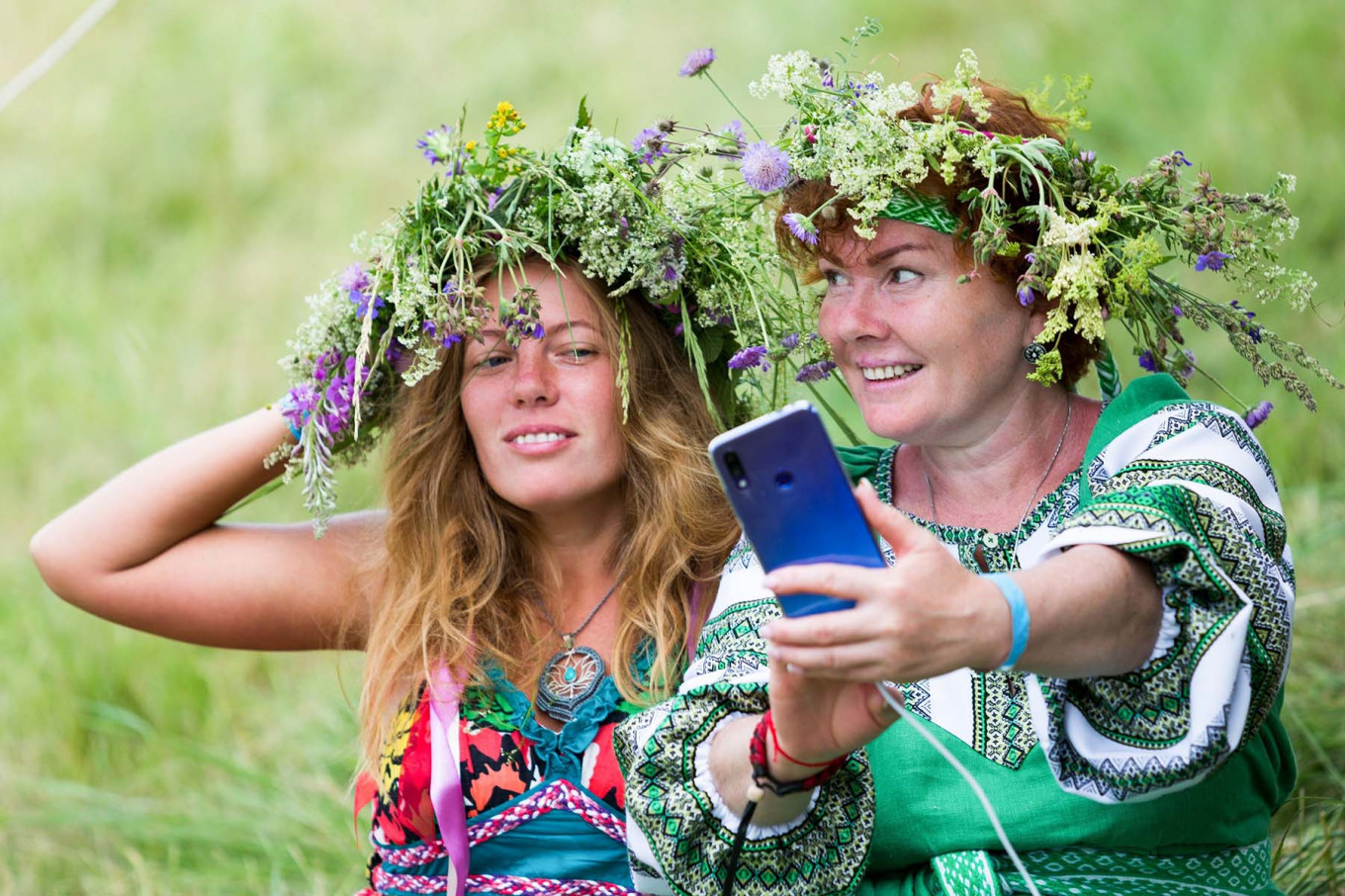
Unmarried women and girls wove flower garlands for their hair. Later in the night, they’d set the garlands, or sometimes candles, on little boats in rivers or lakes and then watched their paths to divine their fortunes. In some places, effigies were also launched into the water.
Moskva News Agency
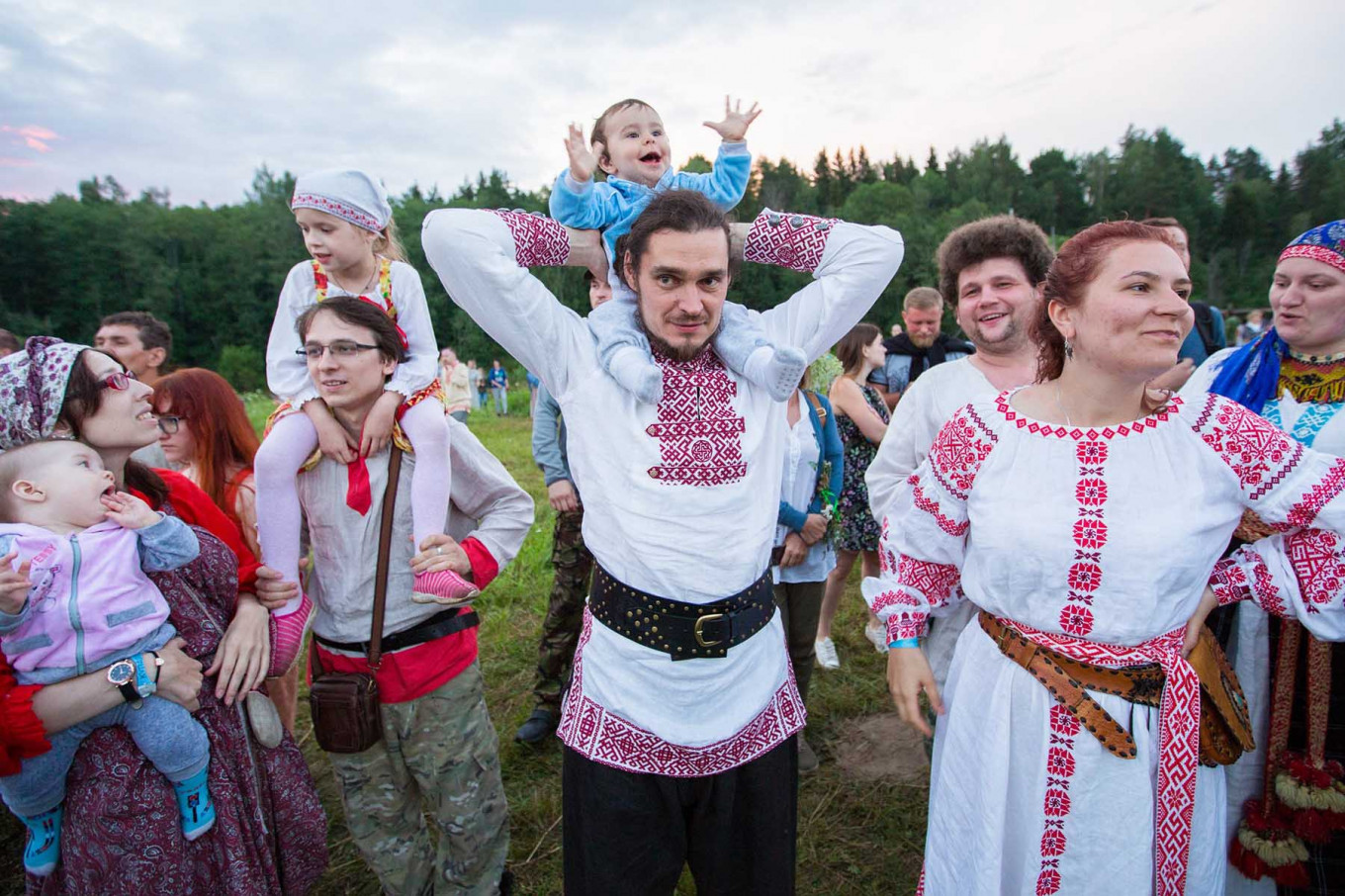
In the south, villagers bathed in fresh water. In the north, they would instead go to the bathhouses.
Moskva News Agency
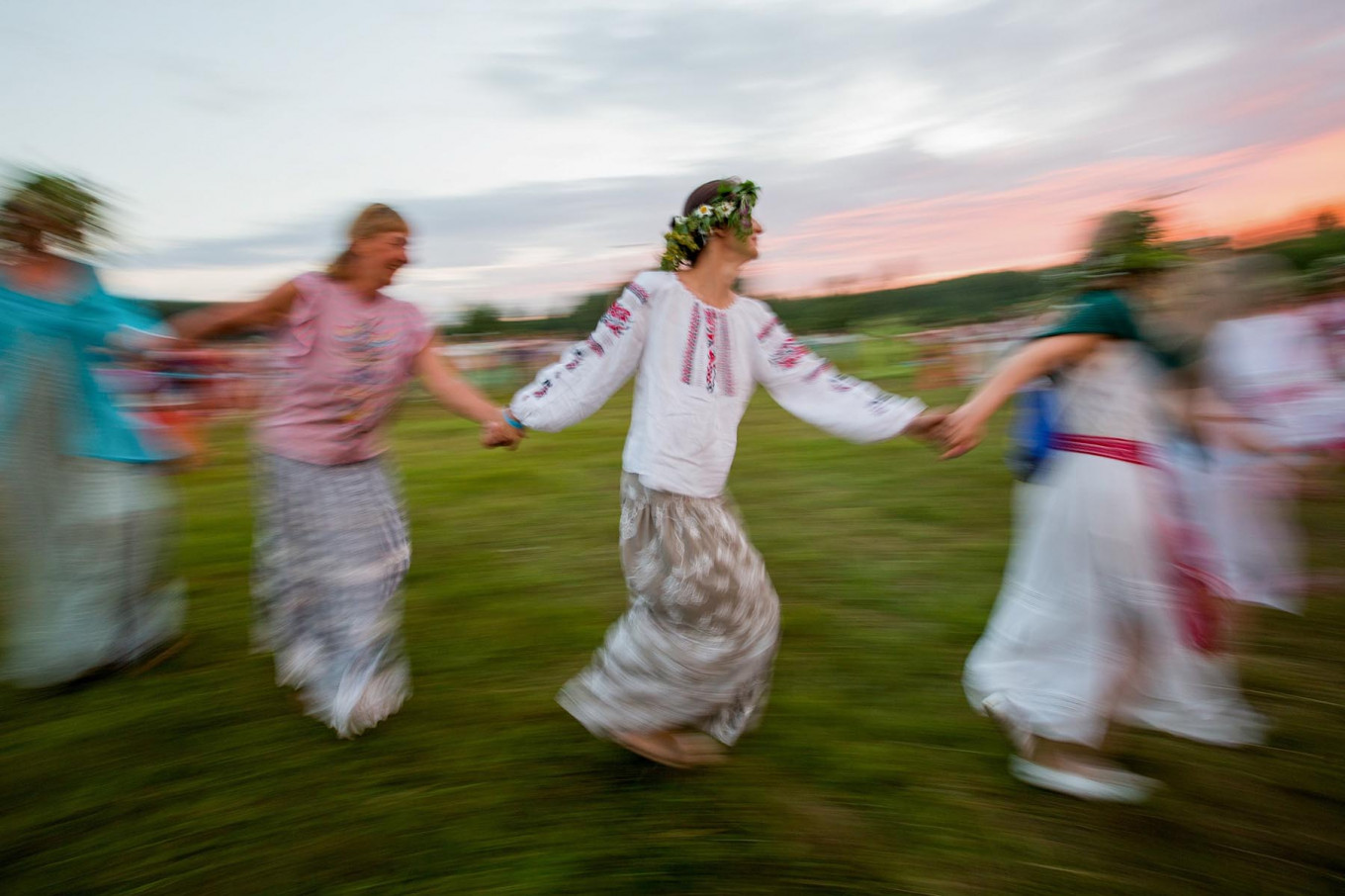
The traditional round dance is the most ancient type of Russian dance. The dance's circular composition resembling the sun originates from the ancient pagan rituals and games of the Slavs, who worshiped the powerful sun god, Yarile.
Moskva News Agency
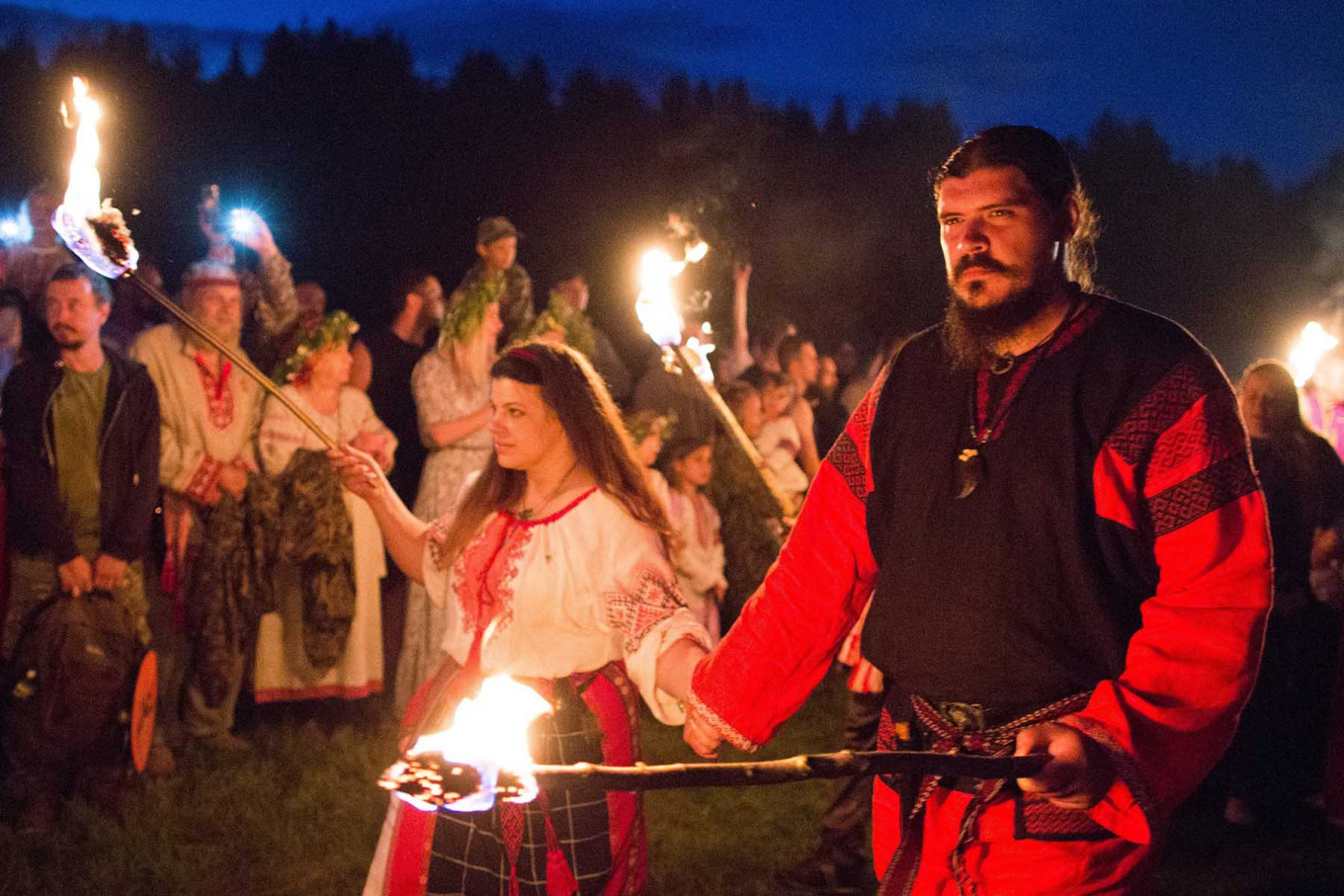
Huge bonfires were lit and the villagers sang and danced around them.
Moskva News Agency
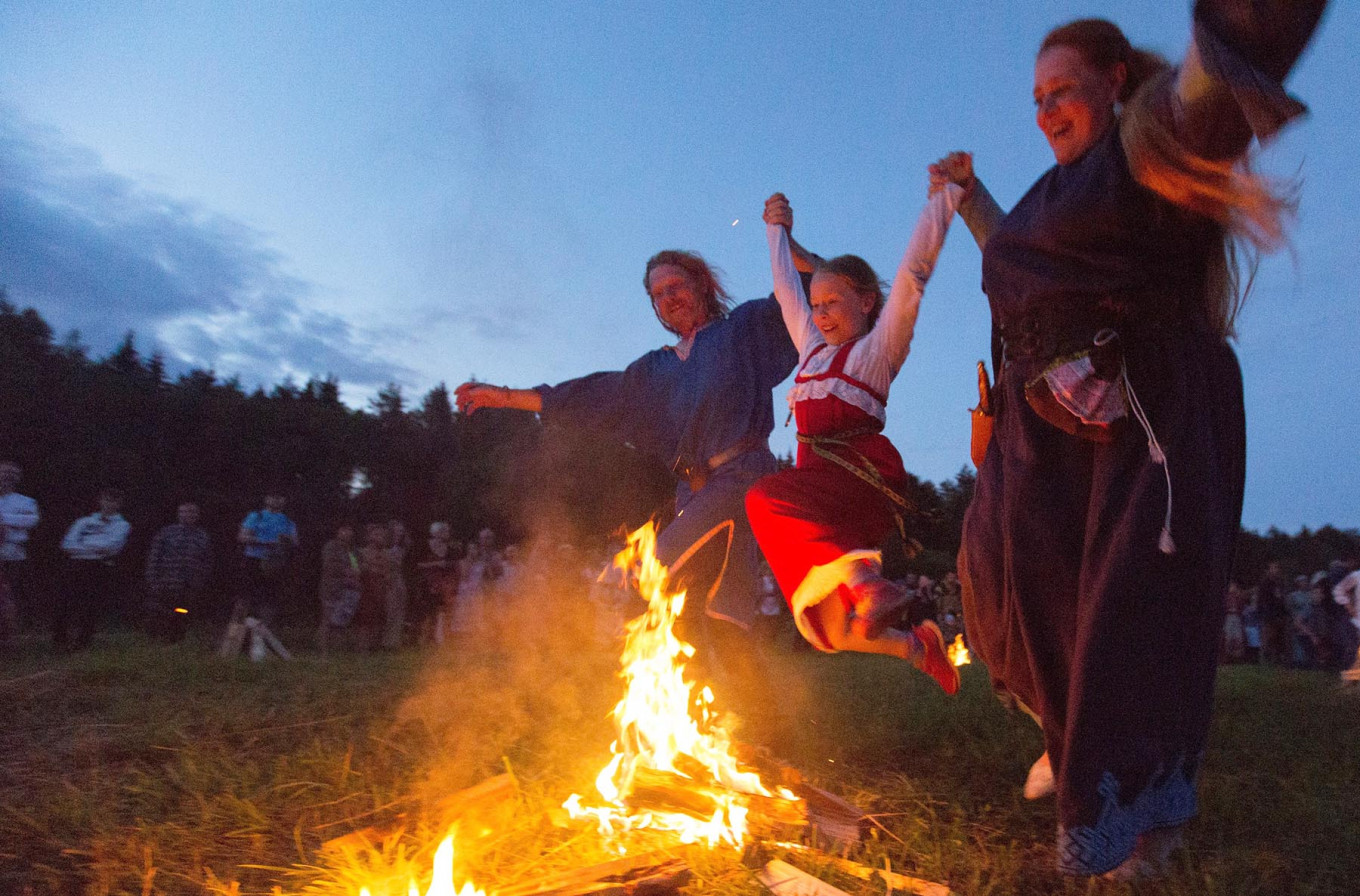
Couples would hold hands and jump over bonfires to show and ensure their devotion; if their hands broke apart, their union would soon do the same.
Moskva News Agency
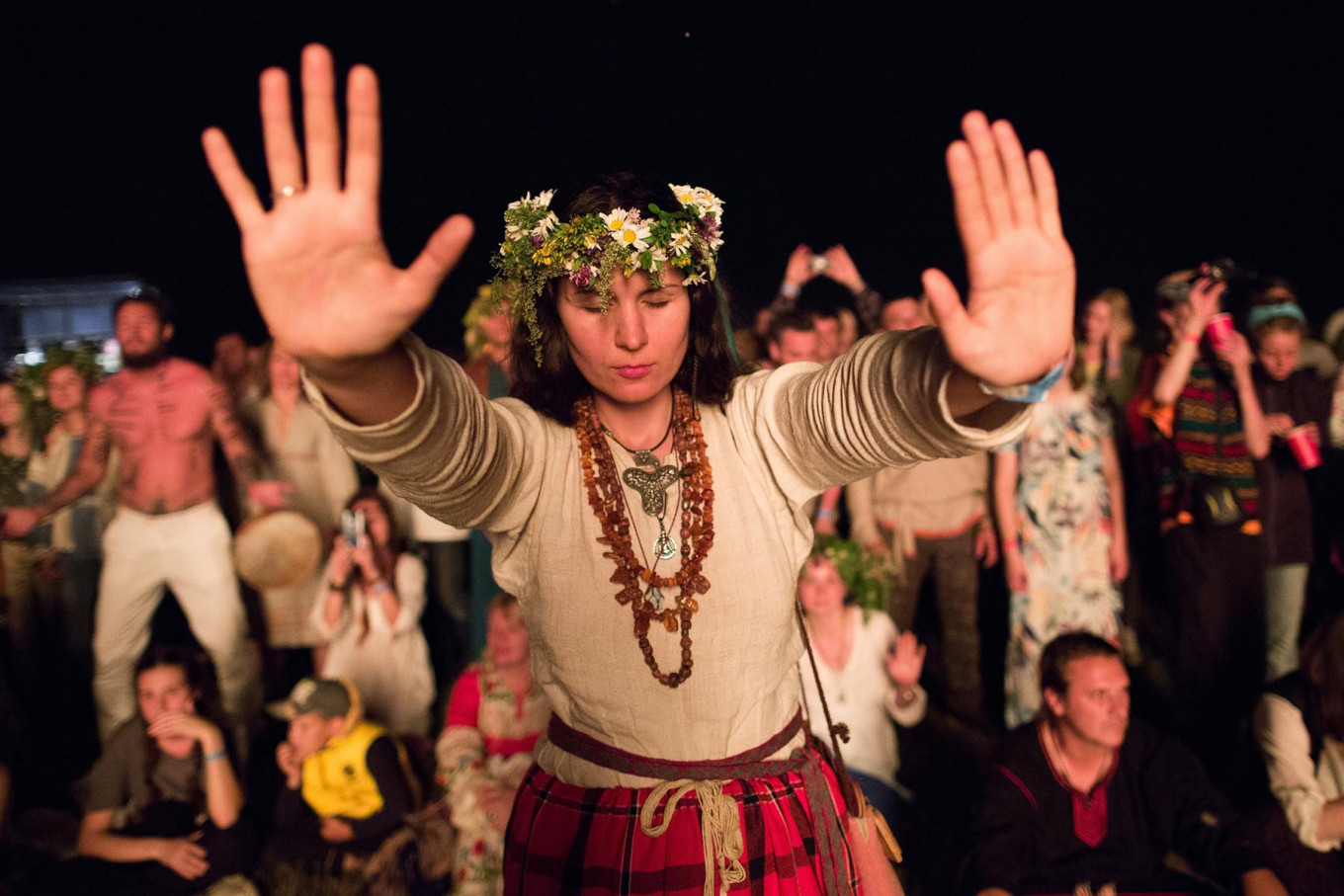
Today in much of the Orthodox world, the church holiday honoring John the Baptist is celebrated on July 7.
Moskva News Agency
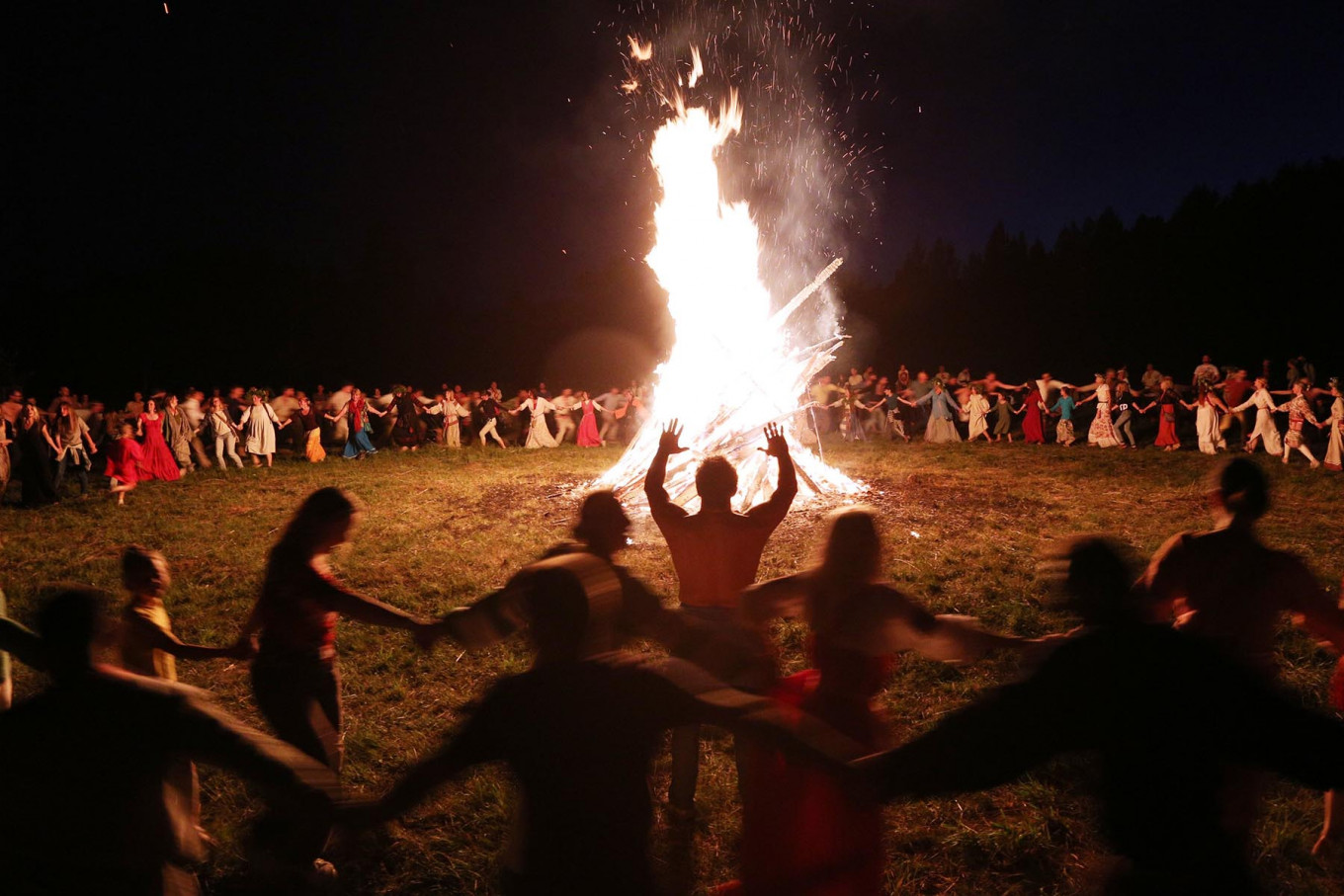
Pagans and folklore enthusiasts celebrate the solstice on one of three dates — the night of June 23-24, the night of July 6-7 or the night that is shortest in the given year.
Moskva News Agency


